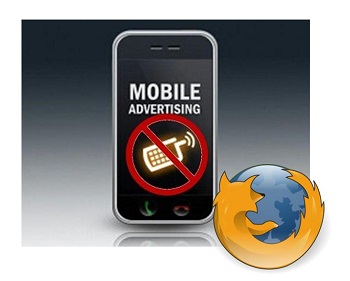Deloitte study highlights the growing amount of money companies are spending on mobile marketing
The amount of money being spent on mobile marketing is expected to grow quickly over the next few years, according to a new study from Deloitte. The study shows that more companies are beginning to focus on engaging mobile consumers. In order to do this effectively, they are investing more heavily in mobile ads, which are specifically designed to connect with those using their smartphones and tablets on a daily basis.
Mobile commerce encourages companies to focus more heavily on mobile ads
The study from Deloitte shows that mobile marketing spending will grow by as much as 20% by 2020. Currently, mobile ads represent up to 4% of total media expenditure. The rise of mobile commerce has shifted the focus of several companies, pushing them to become more mobile-centric in an effort to connect with a new generation of consumers. Telecommunications companies, in particular, are fueling the growth of mobile marketing, with some companies highlighting the expanding availability of the mobile Internet as the best way to engage new consumers.
Companies continue to look for effective ways to engage mobile consumers
 Mobile commerce has become quite popular among consumers, with many people using their smartphones and tablets to make purchases online and in physical stores. Companies are finding it easier to engage these consumers through mobile marketing, though advertisements are not guaranteed to be successful at capturing the interests of consumers. In the past, consumers had considered mobile ads somewhat intolerable, which has pressured marketers to change the way they create such advertisements.
Mobile commerce has become quite popular among consumers, with many people using their smartphones and tablets to make purchases online and in physical stores. Companies are finding it easier to engage these consumers through mobile marketing, though advertisements are not guaranteed to be successful at capturing the interests of consumers. In the past, consumers had considered mobile ads somewhat intolerable, which has pressured marketers to change the way they create such advertisements.
Mobile marketing may unlock new opportunities for companies
The continued expansion of the mobile Internet means that mobile marketing will likely become more important for companies throughout the world. If companies cannot find effective ways to engage mobile consumers, they may miss out on promising opportunities that could lead to financial success in the future. They will, of course, have to ensure that these advertisements are not intrusive, as annoying ads have been something that mobile consumers have hated for some time.
According to the founder of Mozilla, the app currently under development will stop advertising by default.
One of the founders of Mozilla, Brendan Eich, who is also the creator of JavaScript, has announced that there is a Firefox mobile browser in the works which will be called Brave and that will provide users with a browser that will block all ads by default.
In a recent blog post in which Brave, as a company, was launched, Eich described the reason for this product.
Eich explained that he feels that there is a “primal threat” that currently exists in the current internet situation as a result of the disruption of the typical free, ad-supported web. Therefore, he is hoping to create a type of Firefox mobile version called Brave that will offer “a solution designed to avert war and give users the fair deal they deserve for coming to the web to browse and contribute.”
He explained that the Firefox mobile Brave version will be a first step in a new direction for the internet.
 In Eich’s blog post, he explained that the development of this new browser is going to be accompanied by a “private cloud service with anonymous ads”. In this way, the Brave browsers will, by default, block all advertising including “initial signaling/analytics scripts that start the programmatic advertising ‘dirty pipe’, impression-tracking pixels, and ad-click confirmation signals.”
In Eich’s blog post, he explained that the development of this new browser is going to be accompanied by a “private cloud service with anonymous ads”. In this way, the Brave browsers will, by default, block all advertising including “initial signaling/analytics scripts that start the programmatic advertising ‘dirty pipe’, impression-tracking pixels, and ad-click confirmation signals.”
That said, the mobile browser isn’t meant to stand out exclusively because of its ad blocking features. Eich also pointed out that it is being designed to be a “browser-based ad-tech platform.” In this way, it will be removing all ads and, once they’re gone, Brave will place a small number of standard-sized spaces onto web pages through the use of a cloud robot. This will allow the browser to insert its own ads that will be targeted through the use of “browser-side intent signals phrased in standard vocabulary”. They won’t use either persistent cookies or user identification.
The hope is that this Brave Firefox mobile version will help to boost the privacy and speed of internet navigation over smartphones and tablets. This will because it will weed out data-consuming tracking software and ads. The claim from Brave is that this can create a load time that is up to four times better.
 Mobile commerce has become quite popular among consumers, with many people using their smartphones and tablets to make purchases online and in physical stores. Companies are finding it easier to engage these consumers through mobile marketing, though advertisements are not guaranteed to be successful at capturing the interests of consumers. In the past, consumers had considered mobile ads somewhat intolerable, which has pressured marketers to change the way they create such advertisements.
Mobile commerce has become quite popular among consumers, with many people using their smartphones and tablets to make purchases online and in physical stores. Companies are finding it easier to engage these consumers through mobile marketing, though advertisements are not guaranteed to be successful at capturing the interests of consumers. In the past, consumers had considered mobile ads somewhat intolerable, which has pressured marketers to change the way they create such advertisements.
 In Eich’s blog post, he explained that the development of this new browser is going to be accompanied by a “private cloud service with anonymous ads”. In this way, the Brave browsers will, by default, block all
In Eich’s blog post, he explained that the development of this new browser is going to be accompanied by a “private cloud service with anonymous ads”. In this way, the Brave browsers will, by default, block all 